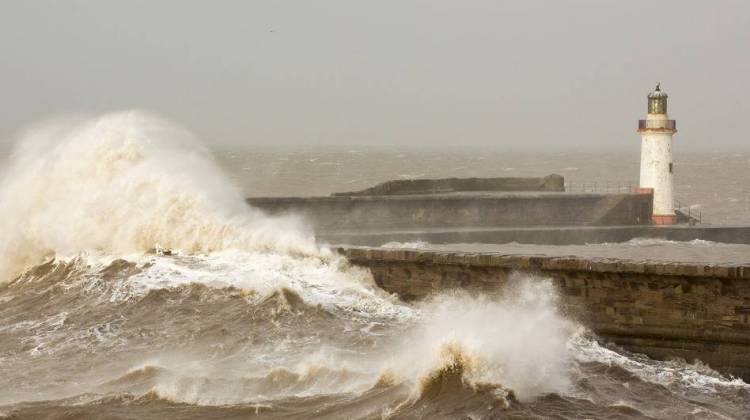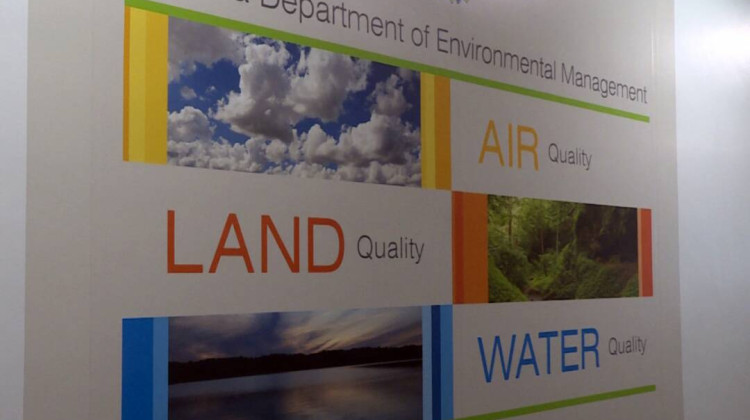Britain's southwest coast is getting slammed by a winter storm, with high winds driving waves as high as 27 feet ashore in an unusual event that meteorologists say is likely linked to the bone-chilling "polar vortex" gripping much of the U.S.
The U.K. Met Office is warning of continued "exceptionally high waves."
It said the waves were triggered by a large, deep depression in the Atlantic which was "whipping waves up" out at sea.
The Associated Press reports that: "It said the storm is loosely connected to the weather system that caused the U.S winter storm, which dumped large amounts of snow in the Northeast and delayed thousands of flights.
"A very strong jet stream helped to steer a lot of low pressure across the U.K.," said forecaster Charles Powell.
The AP says:
"[Monster] waves were recorded at Land's End, the southwestern tip of the U.K."
"In Aberystwyth in Wales, seafront homes, businesses and student residence halls were evacuated as high tides hit the Welsh coast."
"The Met Office, Britain's weather forecasting body, warned of wind gusts up to 70 mph (113 kph) and exceptionally large waves along the coasts of Wales, southwest England and Northern Ireland."
"The Environment Agency issued three severe flood warnings Monday — meaning there is a threat to life and property — for the county of Dorset in southwestern England, as well as more than 300 less serious flood alerts."
9(MDEwMDc1MzM3MDEzNDczOTA0MDc1MzViMQ001))
 DONATE
DONATE










 Support WFYI. We can't do it without you.
Support WFYI. We can't do it without you.